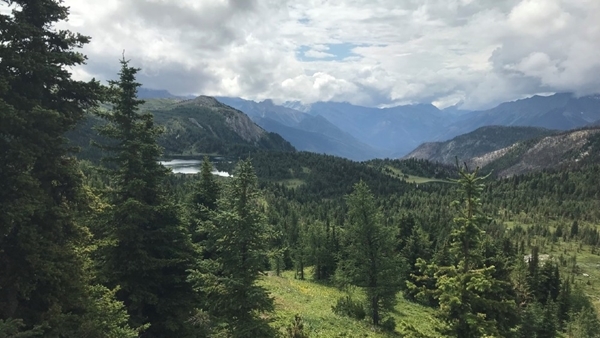
By Dave Parish, GWCT Head of Scottish Lowland Research
Rewilding is familiar to many these days and as a concept is often proffered as the only long-term solution to many of the world’s environmental ills. The general argument suggests that humans have messed-up the natural world to such a degree that only by stepping back and letting nature take its course can ecosystems recover and thus Man’s future be assured. But what exactly is meant by ‘rewilding’ and who wants it?
Many in both rural and urban communities are confused as to what exactly rewilding would mean for their bit of the world, which is not surprising as those in the media/social media drop the phrase into diverse conversations about climate change, biodiversity loss, health & wellbeing and land ownership – to name but a few – like confetti without a great deal of detail.
It also seems to mean different things to different people: sometimes the focus is on ‘simply’ removing Man from the environment, sometimes reintroducing certain species back into the environment (which is pretty heavily reliant on Man’s involvement) – which may or may not mean trying to imitate the communities around during the Pleistocene – and often at present it seems to involve planting trees.
A Google search of the term ‘rewilding’ this morning returned over three million responses. The major organisations aligned with this vision defined the term with phrases like “restoring lost habitats and habitat connectivity”, “restoring trophic cascades” and “letting nature heal itself”. There is also a significant human element with aims to “reconnect people to the natural world” and “ensuring wellbeing”. Clearly the term covers a huge topic with lots of nuances – not the sort of thing that is easily summarised in a few words for your average busy newspaper (or blog) reader, so it is no wonder there is some confusion.
This search also threw up a degree of scepticism in some quarters. Many point out that changing large areas of the environment to accommodate rewilding presumably means removing or greatly altering the current activities, like farming, forestry or fishing, raising questions about how we produce food and fibre for our ever-increasing population – even more pertinent in what looks to be a future festooned with tariffs. And let’s not forget, the “trusting the forces of nature to restore land and sea” approach means that not all wildlife will benefit – there will be winners and losers.
So, what do ‘the people’ think of rewilding? Especially those who are most likely to be impacted in the first instance: those who are currently working in the countryside? GWCT is helping researchers at York University explore some of these questions.
Chris Edwardson has produced a very simple questionnaire to try to find out what those in the rural sector think of rewilding. The hope is that more information will help inform how rewilding might (or might not) work and where. This is completely anonymous and if you wish to take part, please click here.